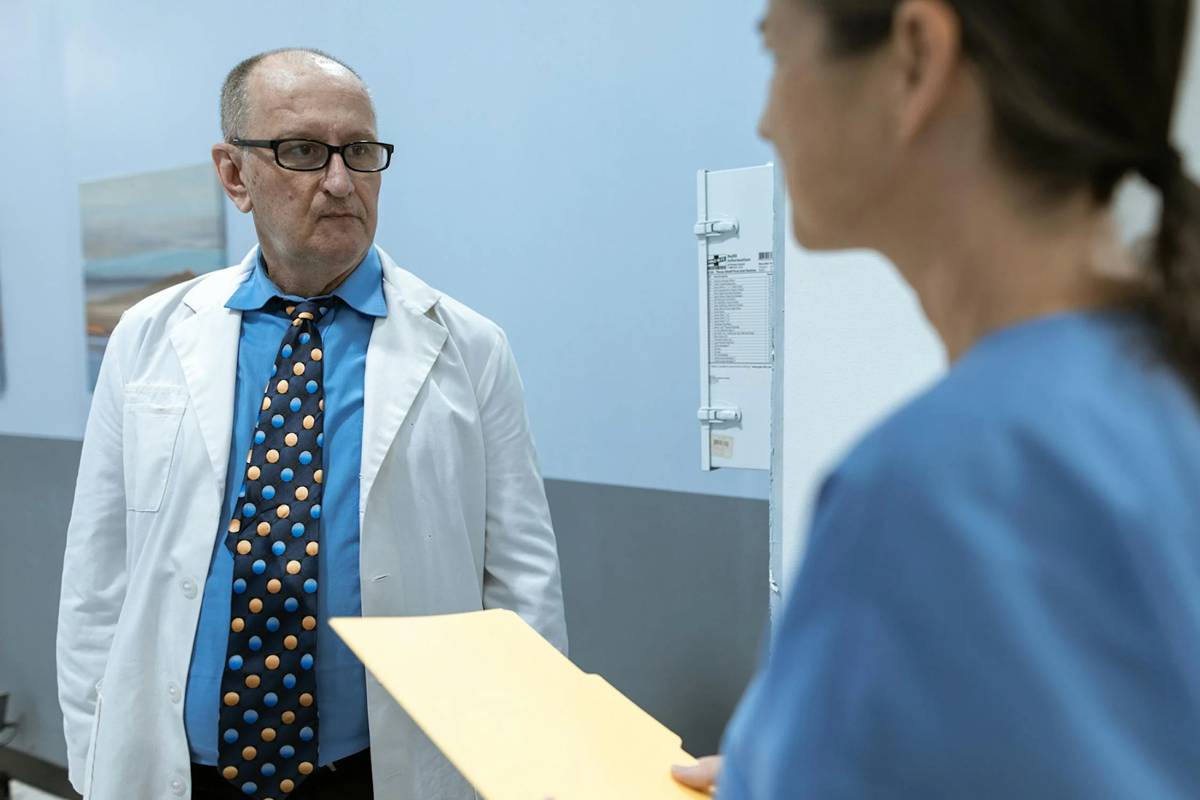
What Every Medical Intern Should Know Before Day One
Your medical internship can be a thrilling but daunting experience. While you must work harder during this period, you’ll at least face some real-world responsibility for a change. As the first day of your internship approaches, you may feel excited and a bit anxious.
The transition from medical student to intern presents new challenges, including managing time effectively, staying grounded, and handling clinical responsibilities. So, let’s explore some practical insights to help you start strongly on day one.
What Is a Medical Intern?
A medical intern is a recent medical school graduate who practices under the close supervision of a licensed doctor. This internship period typically occurs within the first year of postgraduate clinical training, and graduates are required to complete it at a hospital or clinic.
This transitional period marks the shift from student to medical practitioner, where they start applying their medical knowledge in real-world situations. Interns typically rotate through various hospital departments, including internal medicine, surgery, pediatrics, and emergency medicine. While interns perform their roles under supervision, they are usually responsible for the following patient care tasks:
- Taking notes
- Monitoring vital signs
- Performing physical examinations
- Presenting cases
- Ordering tests
- Communicating with families
The internship is a year of intense learning, long hours, and fast professional growth. This period also lays the foundation for specialization, as it allows doctors to choose the field they wish to pursue during their residency. While challenging, it is a vital phase in every doctor’s journey.
What Skills Should a Medical Intern Develop?
Medical interns must develop specific skill sets to perform their daily duties effectively and prepare themselves for a bright career. In addition to medical knowledge, they must acquire effective communication skills, which are essential in most workplaces, including the healthcare sector.
Since interns interact with doctors, patients, and families, they should be able to communicate effectively to improve customer satisfaction, collaboration, and patient care. Strong communication skills can improve efficiency and patients’ experiences.
They must also be empathetic to relate to patients better while delivering high-quality services. This skill also comes in handy for looking at experiences from another person’s perspective. Other important skills medical interns should learn include:
- Leadership
- Management
- Teamwork
- Computer skills

7 Things to Know About Being a Medical Intern Before Day One
It is completely natural to feel anxious about starting your medical internship. However, you must occasionally remind yourself of your past sacrifices and successes to stay on track. Here are some helpful things to keep in mind before your first day.
Keep an Open Mind
You must keep an open mind as a medical intern because you’ll encounter diverse patients, unpredictable situations, and new responsibilities each day. Be ready to learn from everyone while embracing feedback.
Flexibility and openness will enable you to grow and adapt to the various team dynamics. Keeping an open mind and networking as a medical practitioner will also help you learn better and build professionalism from the outset.
Handle More Responsibilities
You’ll take on more responsibilities as an intern than you did in medical school. You’ll be writing orders, managing patient care plans, and making real-time decisions. This can feel overwhelming, but it’s also an opportunity to grow. Stay organized, make inquiries, and prioritize tasks efficiently. Embracing these new duties with confidence and caution is key to making the most of your intern year.
Don’t Hesitate to Ask for Help
Never hesitate to ask for help as a medical intern. Patient safety and your growth depend on your ability to recognize when you need guidance. Seniors, nurses, and other experts are always there to support you.
Clarifying doubts early enough prevents mistakes and builds your confidence. Effective communication and collaboration are crucial for establishing a trusted role within the healthcare team.
Stick to the Rules
As a medical intern, you must adhere to the rules. Stick to hospital policies, protocols, and clinical guidelines that protect patients and healthcare experts. For instance, always use the hospital badge and follow incident reporting procedures. Even if you’re feeling pressed for time, shortcuts can cause serious consequences. Always follow established procedures, document accurately, and respect boundaries.
Embrace Continuous Learning
Medicine is constantly evolving, and no one expects you to know everything on the first day. It is important to embrace continuous learning during your intern year. Learn from every patient encounter, attend healthcare conferences, and read regularly to stay informed.
Since mistakes are inevitable, reflect on feedback, look for opportunities to learn, and remain open to growth. This way, you’ll grow into a more knowledgeable and compassionate doctor.
Spend More Time with Patients
As a medical intern, you’ll spend more time with patients than ever before. This is your chance to build strong communication skills, earn trust, and truly understand the human side of medicine. Listening actively, explaining clearly, and showing empathy can make a difference. These connections not only improve patient care but also enhance your experience, reminding you why you became a doctor.
Be Open to Working in Shifts
Being open to working in shifts is important for medical interns. Expect long hours, overnight hours, holiday coverage, and weekends. Shift care can be tough, but adaptability and self-care make it manageable.
Pay attention to your physical and mental well-being, stay hydrated, and establish a routine that supports your overall health and wellness. Embracing this reality helps you stay balanced, focused, and ready to deliver the best care possible.
Endnote
Before going for your medical internship, there are several factors to consider. These include maintaining an open mind, taking on additional responsibilities, seeking help when needed, and adhering to established rules. Embracing continuous learning, spending time with patients, and staying open to working in shifts.

Comments (0)